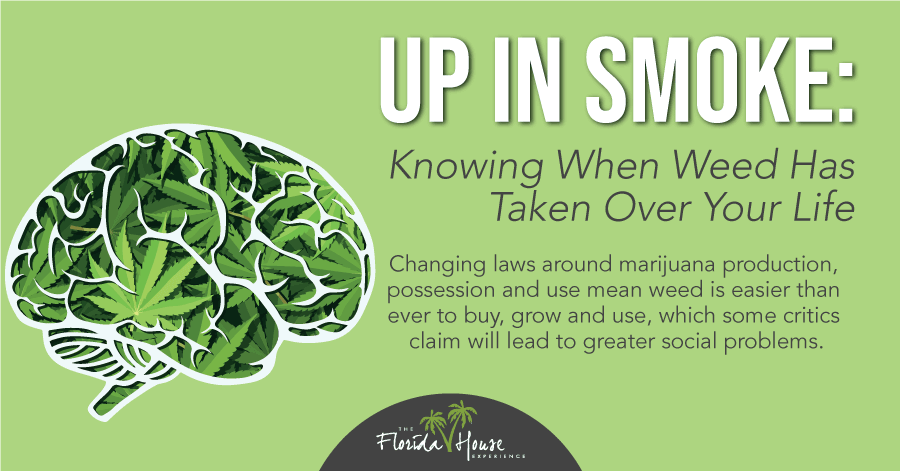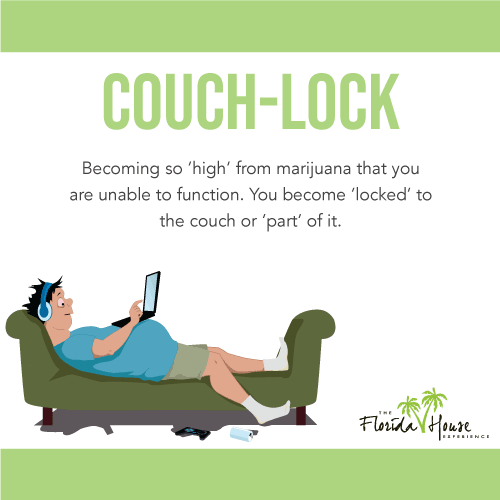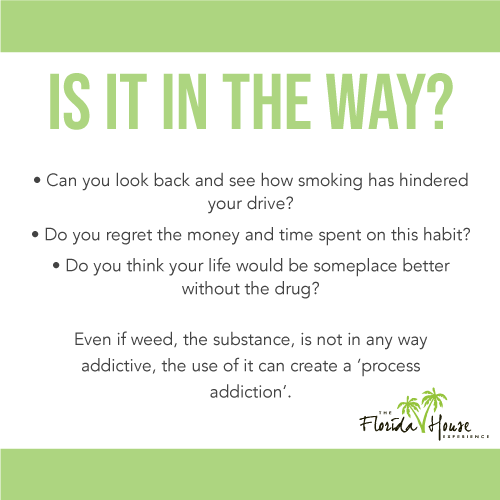
In the last few years, there’s been a monumental shift in laws, attitudes and social acceptance of marijuana use across the country. Despite the fact that cannabis remains classified as a Schedule 1 substance under the Controlled Substances Act, medical marijuana is now legal in close to three dozen states and recreational weed has been decriminalized in 10 states (and counting).
Changing laws around marijuana production, possession and use mean weed is easier than ever to buy, grow and use, which some critics claim will lead to greater social problems. Although weed has never been definitively linked to a single overdose death, there’s no doubt that chronic marijuana use can have a significant impact on all areas of your life, from your health to your relationships, career, and ability to pursue your goals.
Is Weed Keeping You From Reaching Your Potential?
 Marijuana use is well known for its effects, and unfortunately, none of these effects are linked to motivation, ambition or drive. While weed can stimulate your creative side, it also has a tendency to create “couchlock” — the inability to get up and get on with your day.
Marijuana use is well known for its effects, and unfortunately, none of these effects are linked to motivation, ambition or drive. While weed can stimulate your creative side, it also has a tendency to create “couchlock” — the inability to get up and get on with your day.
When used in moderation, it’s unlikely that the sedating effects of weed will have a significant impact on your life. However, recognizing when weed impacts your ability to pursue your goals, engage in healthy relationships and live up to your potential can be tough.
According to Tom, a 34-year-old self-professed “ex-stoner,” when he started smoking weed every day, “I completely changed. I went from being the guy who was out every night to barely leaving the house. I looked like [explitive] and I lost weight.”
Tom finally quit using weed when his future wife forced him to choose between his relationship with her and his relationship with weed. He says: “I know there’s lots of reasons people smoke, but personally I think weed is a killer of motivation.”
Weed Has Gone Mainstream, But What About Moderation?
Now that marijuana has become a multi-billion dollar industry in the United States that supports an estimated 160,000 full-time jobs throughout the country, messaging from, and about, cannabis companies is common across all forms of media. Weed use is rapidly becoming normalized, and massive multinational corporations are the new weed dealers.
These days, it’s possible to become consumed by marijuana. You can work for a cannabis company, invest in weed stocks and buy and use marijuana in a variety of forms in a number of states. There are countless online cannabis message boards, print magazines and podcasts dedicated to growing and using weed, and very few resources available to anyone who wants to cut back, or even quit, using marijuana.
Is Your Relationship With Weed Taking Over Your Life?
 Despite the fact that weed use no longer has the same stigma it once did, many people still have strong opinions about the drug and those who use it. Marijuana use can have a negative impact on everything from your ability to get (and keep) a job to your personal finances and relationships.
Despite the fact that weed use no longer has the same stigma it once did, many people still have strong opinions about the drug and those who use it. Marijuana use can have a negative impact on everything from your ability to get (and keep) a job to your personal finances and relationships.
Although advocates for the legalization of marijuana like to say that weed isn’t addictive, the reality is that many chronic weed users suffer from what’s known as a process addiction. This is a form of addiction that is characterized by repeated, compulsive behaviors that have a negative impact on your life. These are behaviors you keep engaging in even though you know the consequences could include losing your job, struggling with finances or creating conflict with friends and family members.
While you might be able to use weed occasionally without worrying about how it will affect your career, your education or your relationships, ongoing weed use can eventually lead to a shift in your social circle. You can find yourself spending all your time with other chronic weed users, or worse yet becoming socially isolated. This happened to Guy, a 26-year-old who spent two years getting high by himself, living with his parents and doing nothing at all. Guy says he now smokes weed only occasionally and loves it: “[B]ut it drains my ambition and confidence, which then makes me unhappy. So I’m best without.”
Do You Really Want To Be A Stoner In 10, 20 or 30 Years?
The other reality that few people rarely talk about is what it’s like to be a lifelong stoner. After all, it’s not something anyone ever aspires to. However, it’s the reality for many chronic marijuana users.
In his biographical article titled “Confessions of a middle-aged weed smoker: Why I’m finally quitting pot,” Ian Rose discusses what it’s like to have a 30-year cannabis habit. He explains that “there have been good times, sure, but too many plans and ambitions up in smoke.”
Rose explains that, like many marijuana users, he began smoking weed in his teenage years. His occasional use quickly evolved into a daily habit, and he’s come to realize that “there is something tragically squalid about a middle-aged man, whose stocks are low, desperately scrabbing a nightcap spliff together from the seedy detritus at the bottom of his dope drawer.” Rose also acknowledges the widespread impact his lifelong weed habit has had on his life, lamenting: “So many novels unwritten, schemes unhatched, fine intentions unenacted.”
Need Help Dealing With Your Weed Use?
If you’re worried that weed is taking over your life, it might be time to take control and get the help you need to get clean and sober.
Here at FHE Health, our team of compassionate, experienced addiction and mental health experts are available to take your call or chat online 24 hours a day, seven days a week. Whether you use weed to deal with anxiety, manage the impacts of past trauma or to cope with PTSD, we’re here to help you get well.






